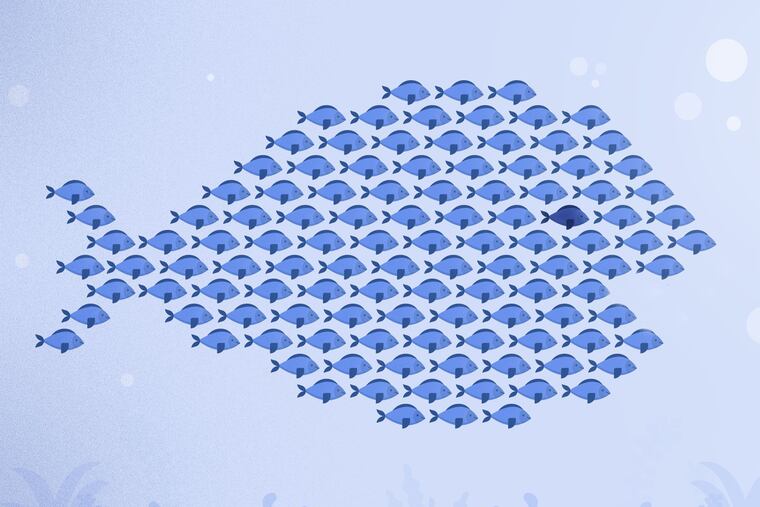All together now: Share the story of Swimmy
Just as self-efficacy emboldens the individual to chase their dreams, collective efficacy motivates the group to set shared goals, coordinate their actions, and overcome obstacles.

This is the second in a three-part series on the legacy of Albert Bandura. Read the first one here.
Do you know the story of Swimmy?
Perhaps, like me, you read the 1963 book by Leo Lionni over and over again as a young child. Or, like me, you read it night after night to your own children.
Here’s how it goes.
Swimmy is a little fish who lives happily in the ocean with his many brothers and sisters.
One day, a much larger fish comes darting through the waves and, in one gulp, swallows every fish in the school except Swimmy himself.
Swimmy escapes to wander the seas and, though at first scared and lonely, eventually comes upon another school of fish just like his own family.
“Let’s go and swim and play and see things!” Swimmy says happily.
But the fish are hiding in the dark shade of rocks and weeds. If they come out, they explain, a big fish will eat them all.
Swimmy thinks for a long time.
Suddenly, he says, “We are going to swim all together like the biggest fish in the sea!”
And he shows them how, if they swim close together, just so, they will look like one giant fish.
Swimmy and the triumph of these little fish leaped to mind when I read one of the articles Stanford psychologist Al Bandura selected, among the hundreds he’d written, to mail to me months before he died.
The choice was timely because Al was working on a book on collective efficacy, a group’s belief in their combined power to achieve shared goals. The choice was also timely because, as he pointed out in what would be our last phone conversation, a single person alone can’t solve such challenges as climate change, social inequality, or the pandemic.
Just as self-efficacy emboldens the individual to chase dreams, collective efficacy motivates the group to set shared goals, coordinate their actions, and overcome obstacles.
“Never doubt that a small group of thoughtful, committed citizens can change the world,” said anthropologist Margaret Mead. “Indeed, it’s the only thing that ever has.”
Don’t think that solving problems depends on either the individual or social structures. “Personal agency and social structure,” Bandura wrote, “operate interdependently.” It’s not either/or, it’s both/and.
Do share the story of Swimmy with a young person in your life. And remember the legacy of Al Bandura when you read the very last line: And so they swam in the cool morning water and in the midday sun and chased the big fish away.
Angela Duckworth is the founder and CEO of Character Lab and a psychology professor at the University of Pennsylvania. Sign up to receive her Tip of the Week — actionable advice about the science of character — at characterlab.org.